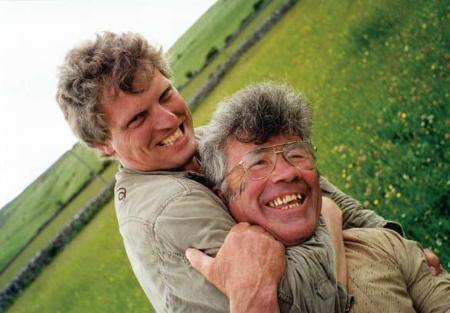Documentary film, to me, is an art form. Art has always offered me unexpected angles on existence, allowing me to act in opposition to a certain kind of one-dimensional journalism that turns people into over-informed, intellectual fossils, who never will digest whatever fragment of reality they happen to experience on the screen, because they don't feel the sender's thumbprint. That's why it's important to build our documentary stories on a sequence of deliberate artistic choices, so we don't, like a voyeur or a fly on the wall, spy on life but take part in it.
"... it's important to build our documentary stories on a sequence of deliberate artistic choices, so we don't, like a voyeur or a fly on the wall, spy on life but take part in it."
In making artistic choices, we let ourselves be vulnerable and visible. It is then that the dialogue between us and the world we seek to describe can become fruitful. By investing ourselves and our experiences in a filmic story, we gain the moral right to tell stories that are never really ours alone but part of a common emotional landscape. Only by fabulating about the world do we bring order into our impression of it, capturing unfathomable complexity in a form that makes the unfathomable readable.
"Inventing reality" is a simple necessity. If we merely have the camera reflect reality, we see only the body and not the soul that moves the body. But staged documentarism is a demanding discipline, in that we are working in the over-crowded no man's land between fiction and documentary, where even the cock-surest dramaturgy has to stay humble in the face of life's unpredictability and insist on the authenticity that gives documentaries their peerless storytelling power.
Without filmic authenticity, the piano will only play false notes, no matter how well you play. You can only stay on fabulating terms with reality by having both feet solidly grounded in it. For reality wears a mask, too, of course. The filmmaker's job is to go behind the mask in the simplest way, which can be a very complicated thing to do. The mask is so thick that sometimes we falter, mistaking the mask for the face.
To me, documentaries are no more 'real' than fiction films and fiction films are no more fabulating than documentaries. There is no "reality" that cannot be seen from a different angle and be revealed as a dream. To describe the world, you have to define the truth in a way that does not exclude lies.
I refuse to be held hostage to circumstance, even though I dip my brush in reality.
To my mind, the filmmaker should not settle for documenting the world as it happens to unfold in front of his lens and later cut the footage into suitable lengths. Films should digest what is seen, just as we do, and then dress reality in new images. Otherwise, it all becomes meaningless, like food passing through the body without giving nourishment.
Any artistic formulation has to be torn away from its source material and create its 'own' universe, with its own ethical and aesthetic laws. Hence, the usual identification between documentary and truth will always be false. Likewise, the usual identification between fiction and fantasy.
To describe a world that is infinite and unstoppable in its wealth of expression, you have to make ultimate, manipulative choices that, in a few happy moments, may succeed in capturing the unstoppable in a solid form in which we can mirror ourselves and be enriched.

